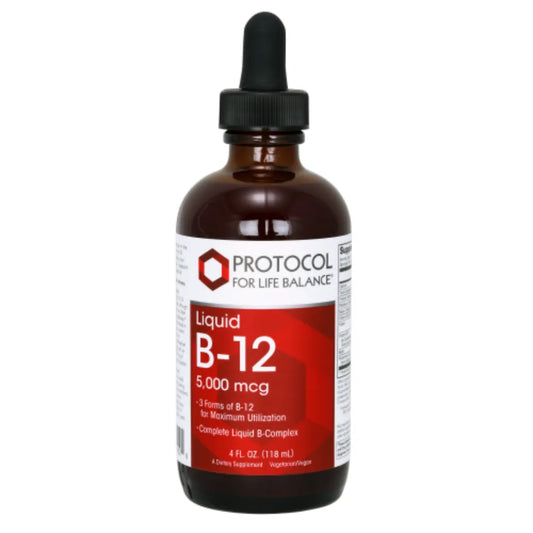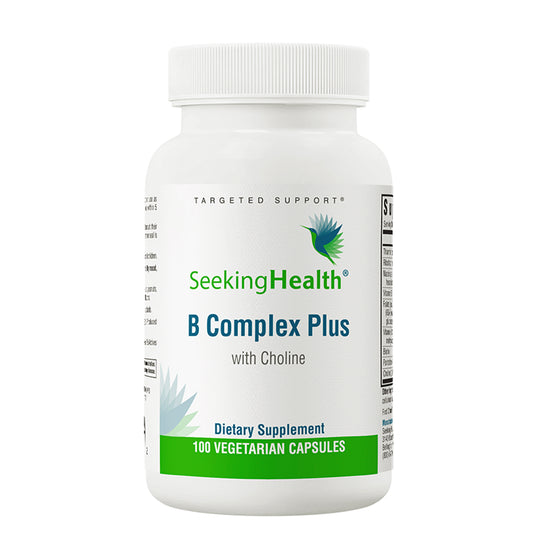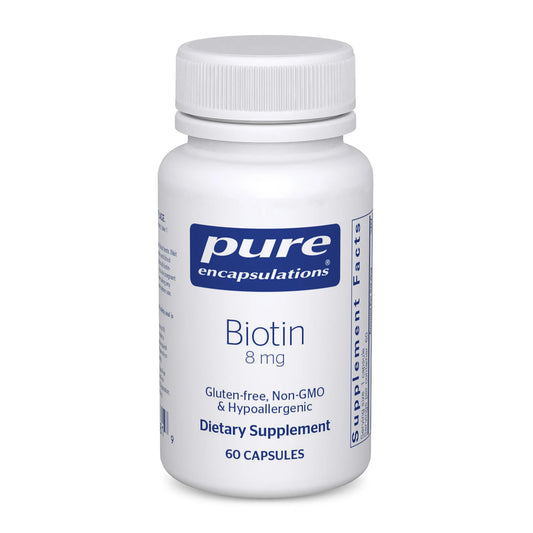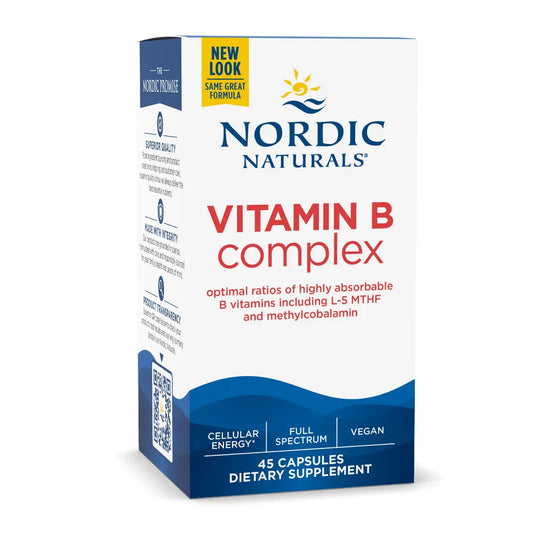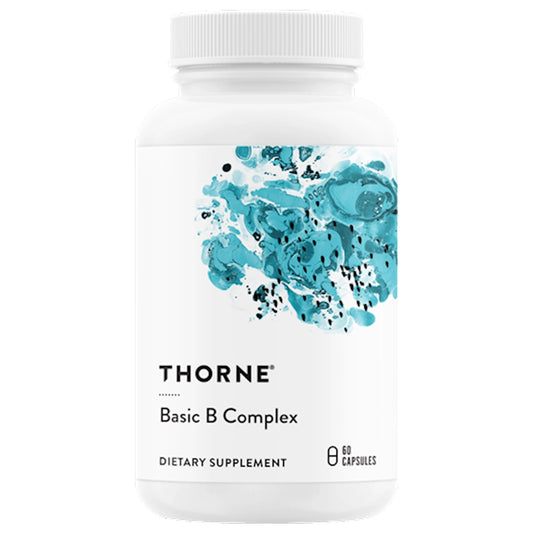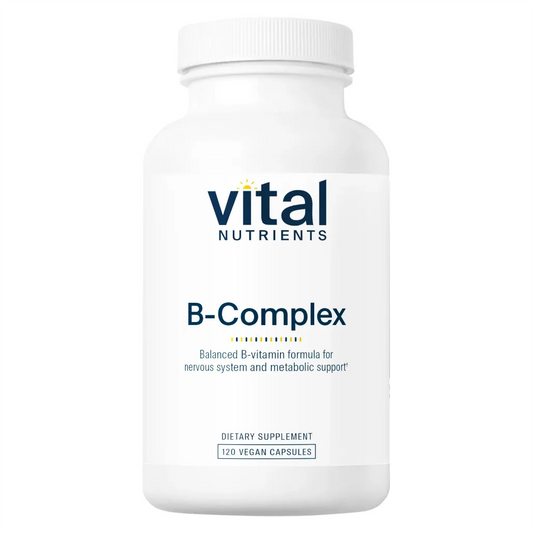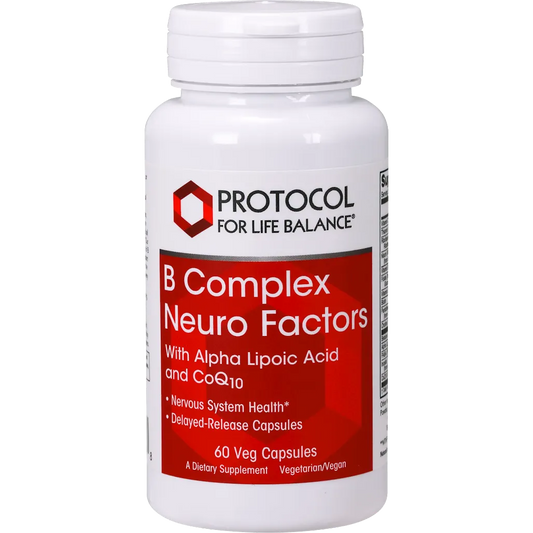We need B vitamins daily because these are water-soluble and cannot be stored in our bodies. Thiamine, riboflavin, niacin, pantothenic acid, pyridoxine, biotin, folate, and cobalamin are the eight B vitamins involved in anabolic and catabolic metabolism, energy production, neurotransmitter synthesis, etc. These vitamins also act as coenzymes in enzymatic reactions that support cellular physiological functioning. Tiredness, lack of energy, feeling shaky while walking, numbness and tingling in hands or feet, hair loss, brittle nails, etc are the common symptoms of vitamin B deficiency.
-
Elevate energy levels by converting food into energy.
-
Improve skin and hair health
-
Promote a good mood.
-
Immunity
-
Formation of RBCs.
-
Promote nerve health
-
Reduce homocystein levels
-
Given to migraine patients
-
Cognition
-
Metabolism
-
Benefits women health
Types of B vitamins and the role of supplements
There are 8 different types of B vitamins and can be available as individual supplements or B-complex.
Thiamine when converted to its active form, thiamine pyrophosphate, acts as a cofactor in the Krebs cycle to generate energy. TPP is also essential for the synthesis of acetylcholine and myelin. Deficiency of thiamine leads to low energy production, delirium, etc. Thiamine supplements treat thiamine deficiency and maintain its adequate levels.
Riboflavin synthesizes other B vitamins like B3, B6, and B9, heme protein synthesis, metabolism, and immune functioning. Certain drugs and health conditions lead to its deficiency. Riboflavin supplements are used to maintain healthy riboflavin levels and treat deficiency, lower homocysteine levels, promote cellular energy production, migraine prophylaxis, and prevent cataract formation.
Niacin is a precursor to NAD and NADP coenzyme. It improves good cholesterol levels and supports skin and brain health. The dietary supplements of niacin are available to treat niacin deficiency, support metabolic function and energy metabolism, and promote heart health and cholesterol balance.
-
Pantothenic acid or vitamin B5
This B vitamin has five main functions. It converts food into energy, supports RBC formation, and has cosmetic applications. Vitamin B5 supplements contain pantothenic acid as calcium pantothenate, Pantethine, etc. These are used to support skin, and hair health, nutrient metabolism, and cellular energy production.
Pyridoxine plays an important role in maintaining homocysteine levels and supporting brain health and immunity. B6 supplements may be used as adjuncts to depression and migraine treatment. These are available in combination with folic acid and B12 to reduce homocysteine levels. Studies even suggest that vitamin B6 supplements ease symptoms of premenstrual syndrome.
Biotin also called vitamin H is important for healthy skin, nails, and hair because it supports keratin production. It is one of the important components of prenatal vitamins also. Biotin supplements are used to treat biotin deficiency and promote skin, nail, and hair health.
-
Folate/ Folic acid or vitamin B9
Folate is crucial for DNA synthesis, RBC production, and conversion of homocysteine to methionine. Folic acid is one of the major constituents of prenatal supplements and is given to women planning pregnancy. Women of childbearing age are deficient in folic acid. The demand for this B vitamin increases before and during pregnancy.
Cobalamin plays a vital role in RBC production, neurological function, DNA and RNA synthesis, and metabolism. B12 supplements are used to support cellular energy production, healthy homocysteine metabolism, and the nervous system. Vegans take vitamin B12 supplements because the main source of this vitamin is from animal products and they have a deficiency of vitamin this vitamin.
-
Vitamin B complex benefits
These are taken to fulfill the daily requirements of B vitamins and support healthy body functioning. These are available in different forms like tablets, liposomal forms, liquid forms, lozenges, and flavored chewable.
Frequently Asked Questions
1) Is it OK to take B vitamins every day?
Yes, B vitamins can be taken daily because they are water-soluble and cannot be stored; hence, they need to be taken daily. Certain B vitamins like B12 are obtained mainly from animal sources so vegans are deficient in B12 and require supplements to fulfill daily requirements. Similarly due to a busy lifestyle, if you are not taking a balanced diet, then taking B complex may be necessary because their deficiency may cause fatigue, diminishing energy levels, etc.
2) Can you take vitamins B and D together?
If you take a multivitamin, you can find these two vitamins on the label along with other vitamins and minerals. If you are taking these vitamins individually together, then it is important to consider the timing of intake because vitamin B is water soluble, and vitamin D is fat soluble. This is the reason why B vitamins are taken empty stomach and vitamin D is taken with food for better absorption and maximal benefits. So it is advisable to consider the timing of taking these supplements.
3) When is the best time to take B vitamins?
Vitamin B is best taken without food with a glass of water. Since these vitamins play an important role in boosting energy levels, the best time to take these vitamins is in the morning.
4) Are B complex supplements necessary?
If you are eating a balanced diet, you don't need supplements. Here are some of the conditions that require supplementation with B complex:
5) Why folic acid supplements are given before pregnancy?
According to studies, folic acid supplements are important for pregnant women to:
-
Prevent neural tube defects.
-
Prevention of congenital heart disease.
-
Prevention of birth defects like cleft palate.
-
Prevent preterm birth.
-
Improve pregnancy outcomes
 Sold outVendor:Genestra
Sold outVendor:Genestra

